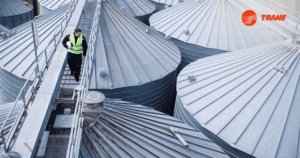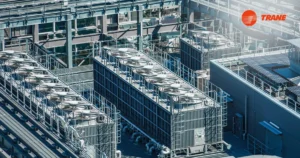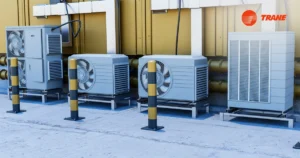Introduction
Qatar’s climate is as unforgiving as it is unique, with summer temperatures that can soar well above 45°C. For businesses operating in this environment, climate control is not simply a comfort measure, but a strategic necessity. Without Temporary Cooling, organisations face significant risks that threaten operations, productivity, and reputation. From construction sites to high-value events, and from data centres to manufacturing plants, overlooking this critical support can expose businesses to vulnerabilities that are costly and sometimes irreversible.
Understanding the Harsh Climate of Qatar
Few places in the world experience sustained extremes in heat like Qatar. Beyond the dry air and high temperatures, humidity levels during peak months further exacerbate discomfort and operational challenges. Sensitive machinery, perishable goods, and even workforce safety are all compromised in such conditions. Businesses that depend on continuous uptime, such as logistics hubs or production facilities, cannot afford system failures caused by overheating or insufficient cooling.
The Direct Impact on Workforce Productivity
A healthy and productive workforce is central to Qatar’s economic progress, yet extreme heat remains a formidable challenge. Prolonged exposure to high temperatures without adequate cooling increases fatigue, reduces concentration, and elevates health risks. This leads to slower project execution, higher absenteeism, and, in severe cases, legal and regulatory liabilities for failing to provide safe working conditions. By contrast, deploying scalable cooling solutions ensures that workers operate in safer and more efficient environments.
Risk to Business Continuity and Assets
When indoor or process environments become unstable, the consequences are immediate. In data centres, overheating can cause system crashes, leading to the loss of critical data and expensive downtime. In food and beverage operations, a cooling failure can mean wastage of entire shipments. In events or hospitality, discomfort among guests risks damaging a brand’s reputation. These examples highlight how inadequate planning for cooling contingencies directly translates into financial losses and reputational damage.
Regulatory and Compliance Concerns
Qatar is moving towards more stringent standards for occupational safety and environmental performance. Regulatory bodies expect businesses to provide safe and efficient working conditions, regardless of the season. Failure to do so can result in penalties, project delays, or even suspension of operations. Temporary cooling solutions bridge this gap by offering compliant, flexible, and energy-efficient systems that meet international standards while addressing urgent requirements
Energy Efficiency and Sustainability Pressures
Businesses in Qatar face the dual challenge of managing rising energy demands while aligning with national sustainability objectives, such as the Qatar National Vision 2030. Poorly managed cooling systems often consume excessive energy, driving up operating costs and environmental impact. Modern temporary cooling technologies, by contrast, are engineered for efficiency, reducing both energy consumption and carbon footprints. This balance between operational reliability and sustainability is crucial in maintaining long-term competitiveness.
Industries Most at Risk
Certain sectors in Qatar are particularly vulnerable without effective cooling support:
- Construction: Large-scale projects risk delays if labourers face unsafe conditions or machinery overheats.
- Events and Hospitality: Comfort is non-negotiable; failures can irreparably harm a brand.
- Industrial Operations: From petrochemicals to manufacturing, process stability depends on precise temperature control.
- Healthcare: Medical facilities and pharmaceuticals require strict climate regulation to protect patient safety and product efficacy.
- Logistics and Data Centres: Sensitive inventory and digital infrastructure demand uninterrupted cooling to prevent catastrophic losses.
The Strategic Value of Partnering with Experts
Addressing these risks requires more than equipment. It demands a partner with deep expertise in designing, deploying, and managing temporary cooling systems at scale. Trane brings a century-long legacy of engineering excellence, combined with an extensive rental fleet and round-the-clock support. This ensures that businesses in Qatar have not only reliable technology, but also the assurance of expert service to mitigate risks in the harshest conditions.
Conclusion
In Qatar’s climate, overlooking cooling is not just an operational oversight but a direct business risk. Whether it is safeguarding people, protecting assets, or ensuring compliance, temporary solutions provide a vital buffer against disruption. For organisations looking to remain resilient and competitive, securing the right partner is essential. Trane empowers businesses to bridge these gaps effectively, offering scalable solutions tailored to Qatar’s demanding environment. For those seeking flexible, rapid-response options, a temporary chiller rental provides the reliability and assurance necessary to keep operations moving forward without compromise.




